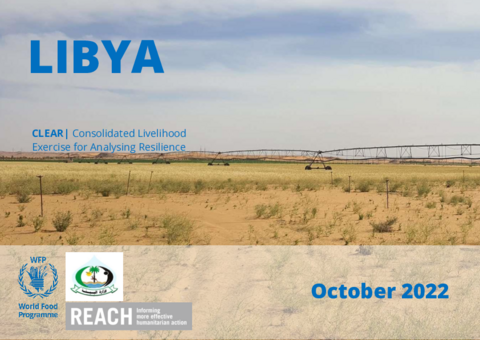
Aiming to fill this knowledge gap, considering that other assessments looked at topics affecting agriculture such as desertification, seawater intrusion, and effects from the armed conflict, however, these projects did not explore the sector’s possible resilience opportunities. The objective of the assessment was to inform the design and targeting of development programmes and policies related to climate change adaptation by shedding light on how both current and future climate risks affect the most vulnerable people.
In a first phase, a map was produced outlining the main livelihoods in Libya. Focusing on livelihood means, the priority was placed on communities and what they do for a living. This helped to understand how climate affects people, rather than geographic areas.
A second phase of the assessment focused on the vulnerability of those communities to climate change in each livelihoods zone. The resilience profiles of these zones were based on the core indicators of the CLEAR approach. The indicators of food outcomes, climate-sensitivity of incomes, and livelihood diversity were explored through secondary data review, and supported by field data from validation workshops and focus group discussions conducted across the country.
In the third phase, meteorological data from 1980 until 2020, as well as climate modelling predictions based on precipitation and temperature were analysed to investigate the possible impact of climate change on the different livelihood zones. aiming to fill this knowledge gap, considering that other assessments looked at topics affecting agriculture such as desertification, seawater intrusion, and effects from the armed conflict, however, these projects did not explore the sector’s possible resilience opportunities.
The objective of the assessment was to inform the design and targeting of development programmes and policies related to climate change adaptation by shedding light on how both current and future climate risks affect the most vulnerable people.
